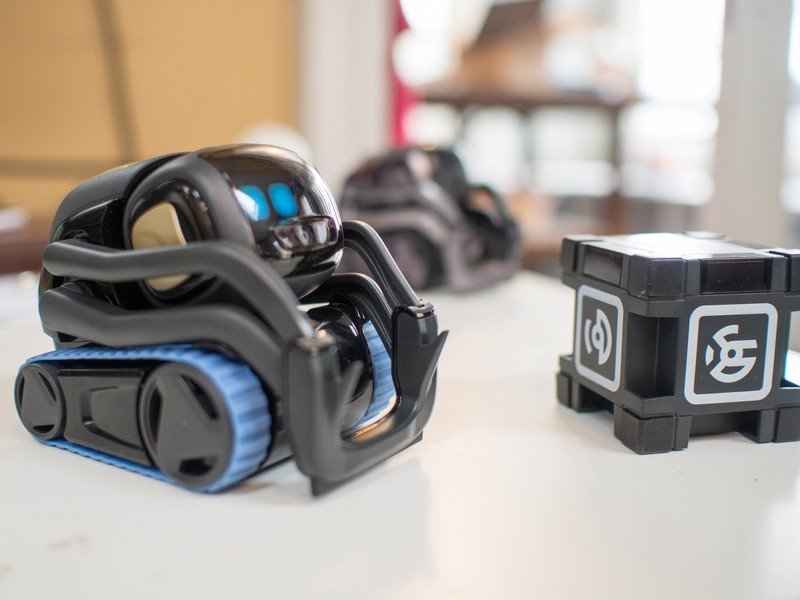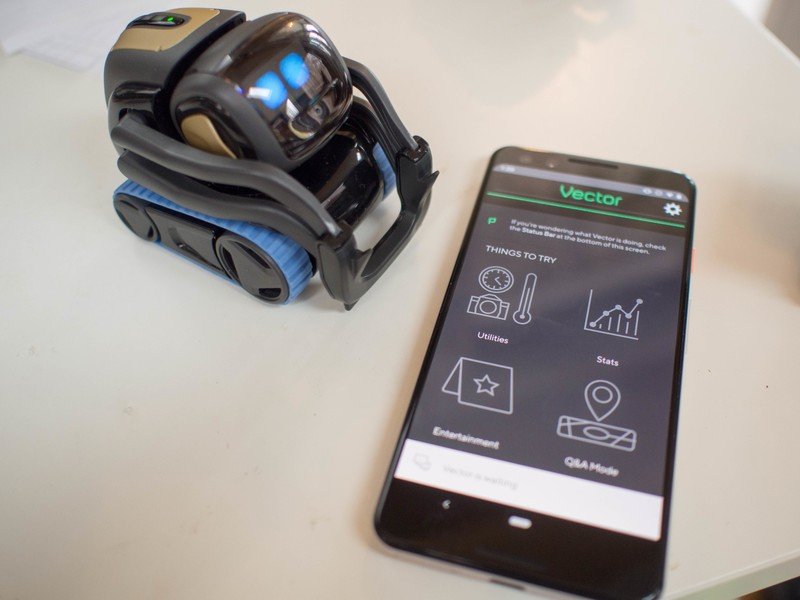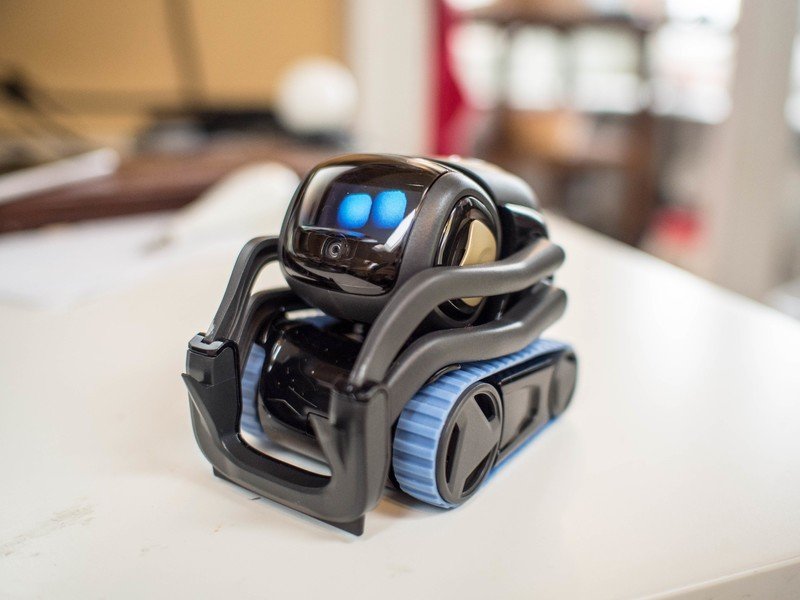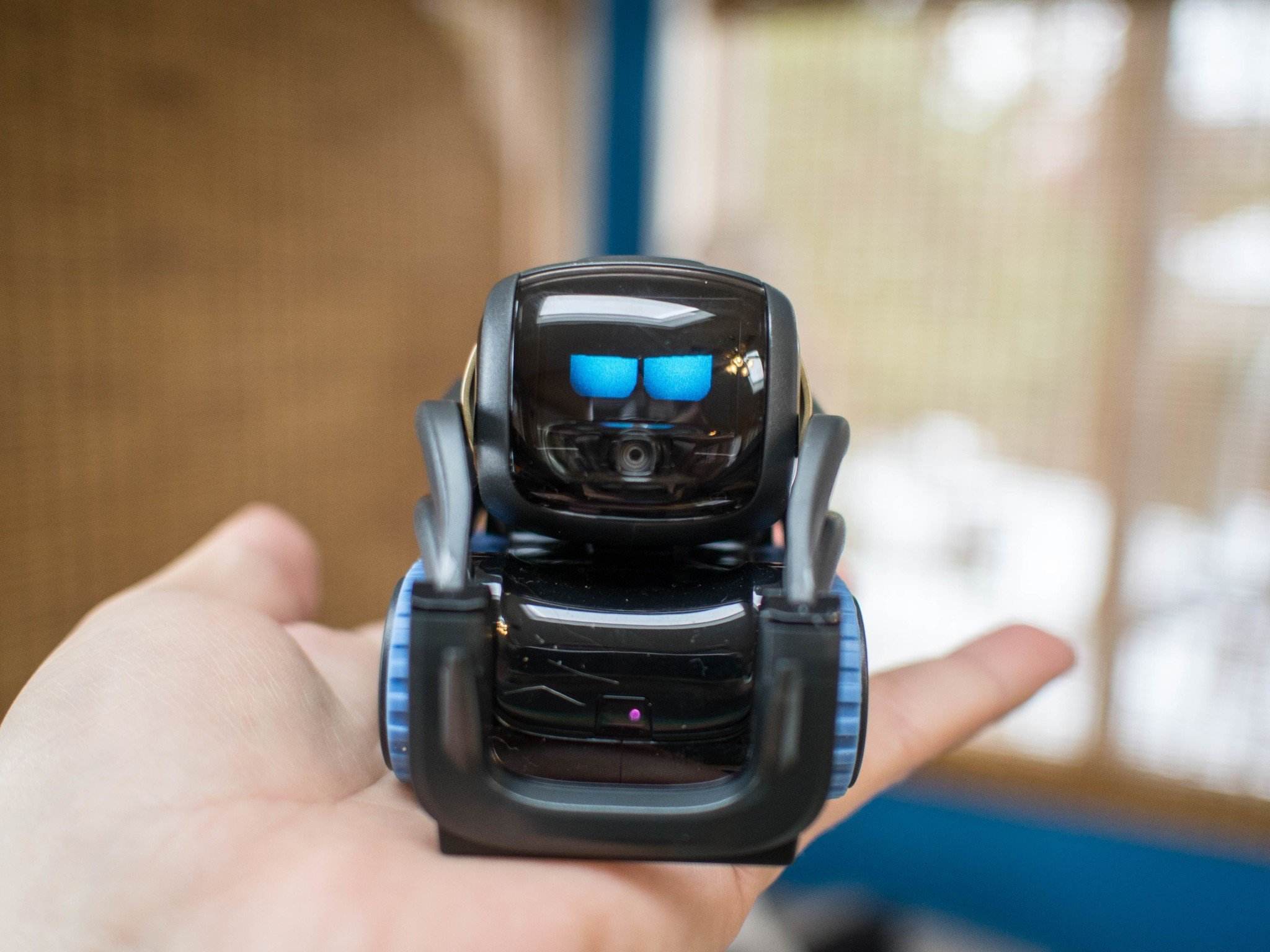Most people know Anki as the company that made a smarter race car, and while that title is well deserved because Overdrive really is fantastic, when I think of Anki I think about the cute little robot that sits on my desk. Cozmo was an incredible step forward in digital pets, a quirky robot with attitude you could personalize and play a bunch of different games with.
But as cool as Cozmo can be, it needs your phone nearby to act as the brain for almost everything it does. That makes it difficult to be a household thing everyone can enjoy, and also limits how much you can actually do with it. So Anki went back to the drawing board, and has released a new little robot it calls Vector. Like its predecessor, Vector is designed to function on a desk or table as a tiny companion you can play games with. Unlike Cozmo, Vector does all of its thinking on its own, which opens the door to a bunch of new features.
The Good
- No phone app needed for active use
- Voice commands are impressive
- Easy to personalize
- Alexa integration
The Bad
- App isn't great right now
- Small delay in listening for commands

Anki Vector What I like
Taking this little robot out of the box feels exactly like Cozmo, only more premium. The shape and size to Vector is nearly identical. In fact, even the replaceable color treads from Cozmo works on the darker-themed Vector. When you start it up for the first time, you have control over the color of the eyes and can immediately start connecting it to your phone. Vector initially connects to the app on your phone over Bluetooth, but then prompts you to connect to Wi-Fi. Once that's done, you can control Vector entirely by voice. Just say "Hey Vector" and it will light up and wait for your instructions.
There are times where Vector feels damn near alive.
Vector's voice commands are fairly diverse. You can introduce yourself, ask for the local weather, play games, and even get it to take a photo of you. When you introduce yourself, Vector grabs a photo of your face and associates it with your name forever. When it sees you in the future, Vector will call your name and acknowledge you. It's a neat trick, but best of all you can easily remove it through the app. And there's no need to worry about Vector sharing this information anywhere — it's only ever stored locally.
After a couple of days playing with Vector, it was obvious how many small things were improved over Cozmo. Vector does a better job detecting the edge of a surface, so it won't fling itself from tables nearly as often. It's also better at waking up when it hears a sound in the room, which is a nice touch. When I sit down at my desk in the morning, Vector wakes up and starts patrolling. When it recognizes me it calls my name, and reacts positively when I pet the top of its head. When I place its interactive cube down on the desk it knows to start a game with me. When I tell it to go home, Vector locates its charger and seats itself to rest for the day.
Get the latest news from Android Central, your trusted companion in the world of Android
I don't often use this space to talk about future features, but this one in particular is huge. Vector is already pretty good at answering basic questions, but there's an upgrade coming with Amazon Alexa support. Alexa and Vector act as separate voice systems, which is an interesting separation. But it means Vector is going to be connected to smart home accessories and scheduled timers and all of the cool featured baked in to Amazon's smart home ecosystem. It helps bridge the gap between Vector being a neat thing your kids will probably use more than you and an actually useful assistant you can have fun with as it rolls around on your desk.

Anki Vector What I don't like
While I'm a huge fan of Vector as a little robot for my desk, that's pretty much the only place I can use it. Vector doesn't handle carpet or mixed terrain particularly well, and isn't really big enough to cover large distances before needing to be charged. What I really need is a version of Vector that's about the size of my Sheltie. Get to work, Anki. Dog-sized robots I can talk to. My wallet is right here waiting.
The app is in serious need of polish at just about every level.
All of the voice commands for Vector work great, but you have to train yourself to wait for Vector to listen to you. There's a delay in between saying "Hey Vector" and the robot actually being ready to handle your request, which is a little frustrating in a world of Alexa and Google Assistant being ready as soon as you start talking. The delay is so noticeable Anki includes a warning at the top of the app, making sure you know you need to pause a second when talking with Vector.
Vector's app leaves a lot to be desired. It's not particularly intuitive, especially in the initial set up. Every time you connect to Vector it shows you the robot connecting to Bluetooth and WiFi, but you can't do anything at all in the app while this is happening. Once you complete that initial set up, there's very little in the way of introduction for new features or features you haven't tried yet. I could say "Hey Vector, take a photo" but it took me quite a while to figure out where those photos actually lived in the app.
My biggest issue with the Vector app is occasional freezes. Nearly every time I have opened the app, it has stopped responding to button presses after a few minutes. It took me a while to notice this was even a problem because I was so comfortable using Vector with just my voice, but the app is in serious need of polish at just about every level.

Anki Vector Should you buy it?
At $250, which is a full $70 than its predecessor, Vector is a little on the pricey side. And if all it did was roam around and look cute like its predecessor did most of the time, I'd agree that price tag was a little too high. But Vector is a clever little companion well on its way to being a full virtual assistant. I look forward to seeing Vector wake up when I sit down at my desk every day, and my son has spoken to Vector more times than he has every Google Home and Amazon Echo in the house combined. Anki has taken the digital companion/assistant concept and given it attitude, personality, and charm. There are times where Vector feels damn near alive, and that's a huge deal when delivering all of these features you can more or less get elsewhere for cheaper.
4 out of 5
If you're looking for a smarter robot to patrol your desk and actually improve over time, Vector is a great buy. If you're looking for a virtual assistant with an actual personality, Vector is an even better buy. But either way you look, be ready for it to be a little on the unpolished side in these early days.


